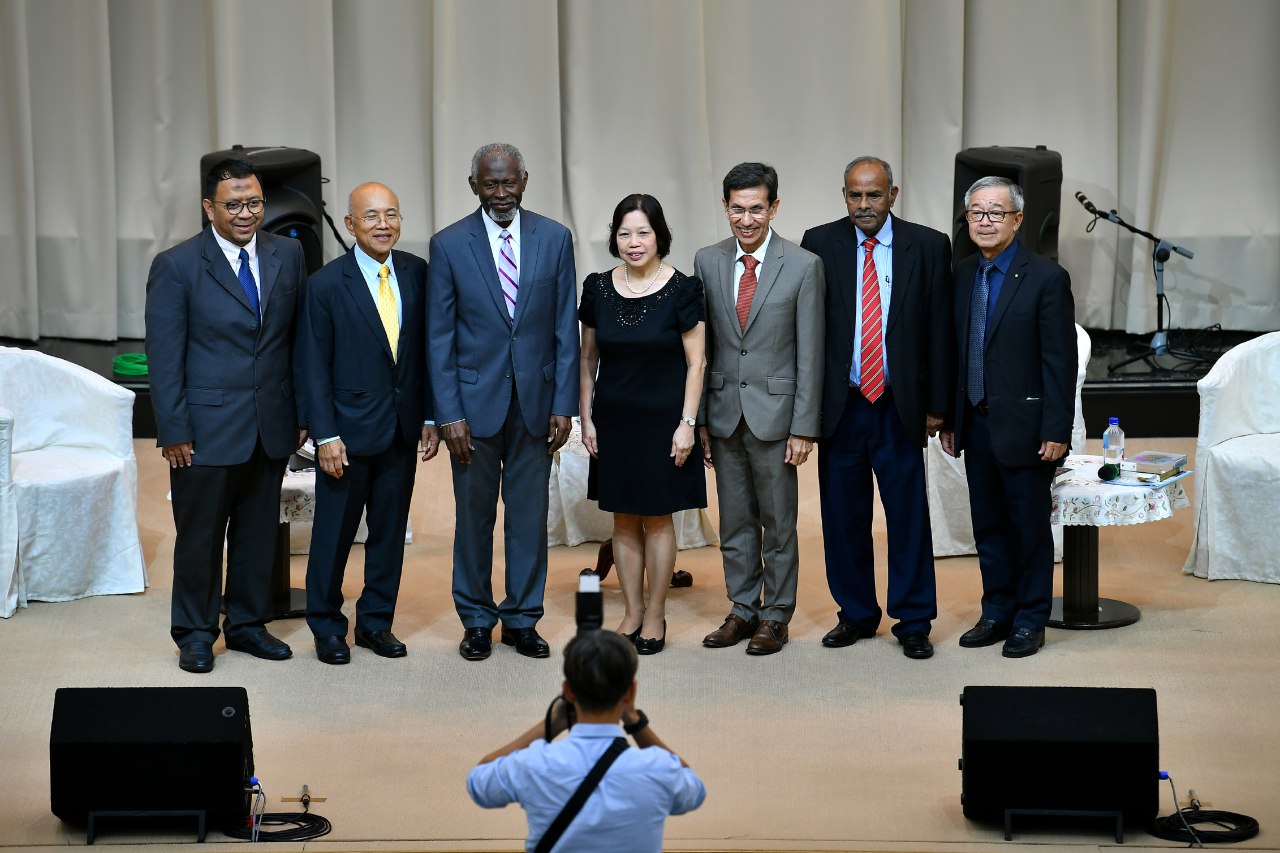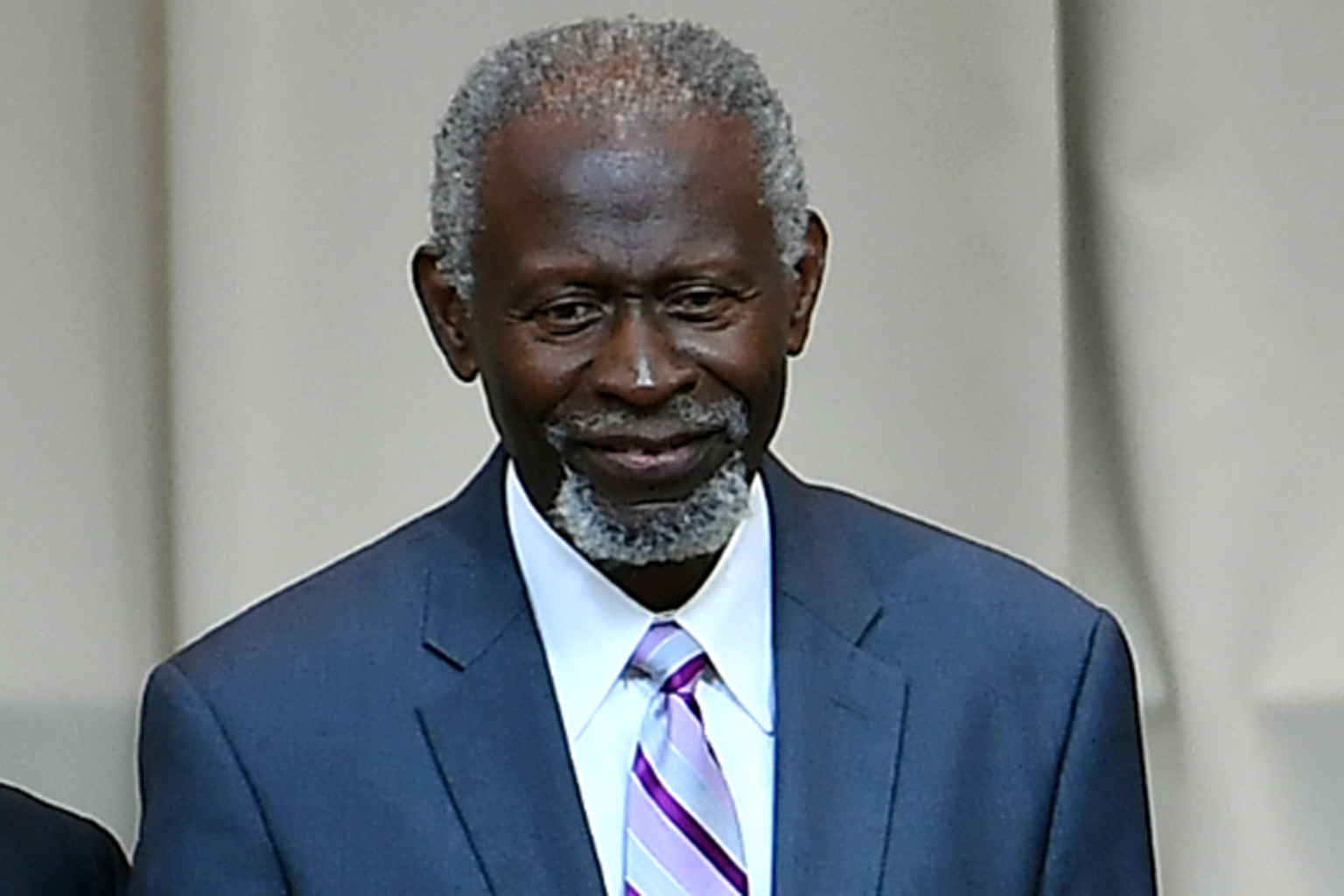Religious harmony a necessity, says expert
Interfaith understanding even more important in era of globalisation and Internet, he says
Sign up now: Get ST's newsletters delivered to your inbox

(From left) Dr Mohammad Hannan Hassan; Mr Tay Eng Kiat, General Director of Singapore Soka Association (SSA); Dr. Lawrence Edward Carter Sr.; Mdm Chan Mei Wah, SSA Chairperson; Ambassador Mohammad Alami Musa; Ambassador K Kesavapany; and Mr Michael Yap; taking a group photograph at the end of the Interfaith Symposium.
ST PHOTO: LIM YAOHUI
If the world was a village of some 1,000 people, you would find about 350 Christians, 200 Muslims, 150 Hindus, 60 Buddhists, 50 believers in animistic or traditional religions, four Sikhs, two Jews and 200 non-religious or atheistic people living side by side.
Even in such a community, religious harmony would not just be an option but a necessity, said religious expert Lawrence Carter at an interfaith symposium held at the Singapore Soka Association headquarters in Tampines yesterday.
Interfaith understanding and tolerance have become even more important in the world today, especially in an era of globalisation and the Internet, he added.
"Globalisation means interdependence... and the Internet is our planetary nervous system. We are all changed by the choices, voices and visions of our neighbours," added Dr Carter, dean of the Martin Luther King Jr International Chapel in the United States.
He was speaking at a panel discussion titled Harmonious And Peaceful Co-existence In Diversity. The other three panellists were Ambassador K. Kesavapany, who sits on the council of the Inter-Religious Organisation in Singapore; Dr Hannan Hassan, vice-dean of the Islamic Religious Council of Singapore (Muis) Academy; and Singapore Soka Association vice-general director Michael Yap.
Mr Kesavapany likened religious diversity and harmony to the multiplicity of gods in the Hindu faith.
"When I got married, the priest told me I'd be blessed by 330,000 gods. I was thinking, 'Won't they quarrel, won't they fight'," he told the audience of about 700.

"But they are able to find space because they give space to one another. And that's how we are able to co-exist in Singapore where we have many religions," said Mr Kesavapany.
Minister-in-charge of Muslim Affairs Masagos Zulkifli, the symposium's guest of honour, said in a speech that Singaporeans must continue to strengthen the racial and religious harmony built by past generations, who believed diversity to be a wellspring of strength.
"This is because we are a small, open society easily buffeted by external shocks and influences," said Mr Masagos, who is also Minister for the Environment and Water Resources.
"In this digital age, we also face new challenges that could cause tension... such as the spread of fake news about religious practices," he said.
While the Government has enhanced the Maintenance of Religious Harmony Act, individuals also have an important part to play as laws and public policies are not enough to build enduring friendships and mutual respect, he added.
"There will be times when we encounter differences with others of a different faith and when we do, I hope we can share our views respectfully," he said.
Mr Masagos noted that dialogue between different faiths is important to religious harmony.
Dr Hannan said that Singapore, being one of the most religiously diverse countries in the world, has many examples of interfaith tolerance to share. "We need to document more of them and tell these stories to our children," he added.


